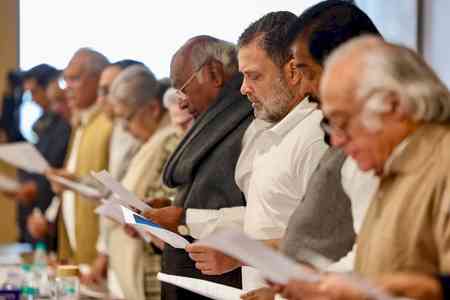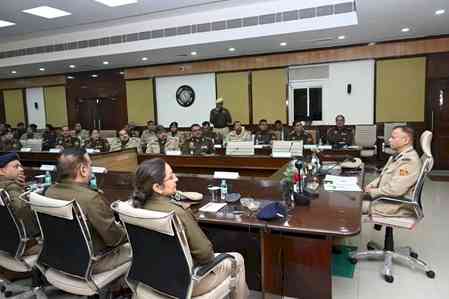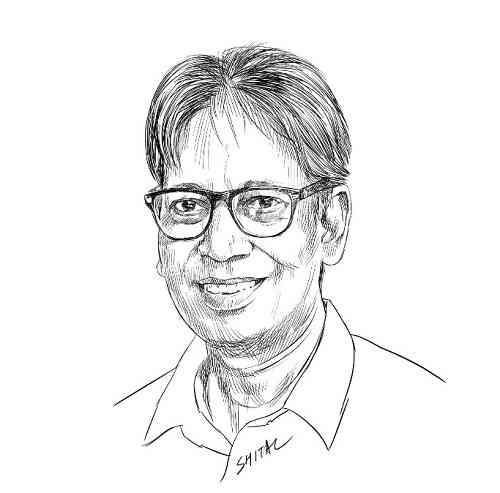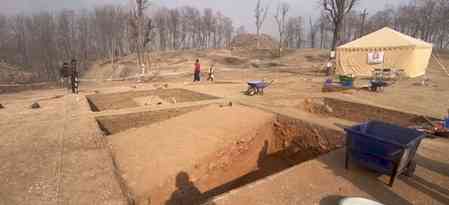Distinguished lecture on topic “Partition of India and the emergence of Pakistan as a garrison state”
Department of Defence and National Security, Panjab University in collaboration with Department of Punjabi, Panjab University organised a distinguished lecture on the topic “Partition of India and the emergence of Pakistan as a garrison state” by a prominent scholar and author, Dr. Ishtiaq Ahmed, Professor Emeritus, University of Stockholm, Sweden in the seminar room, SAIF/CIL, Panjab University, Chandigarh on Friday.
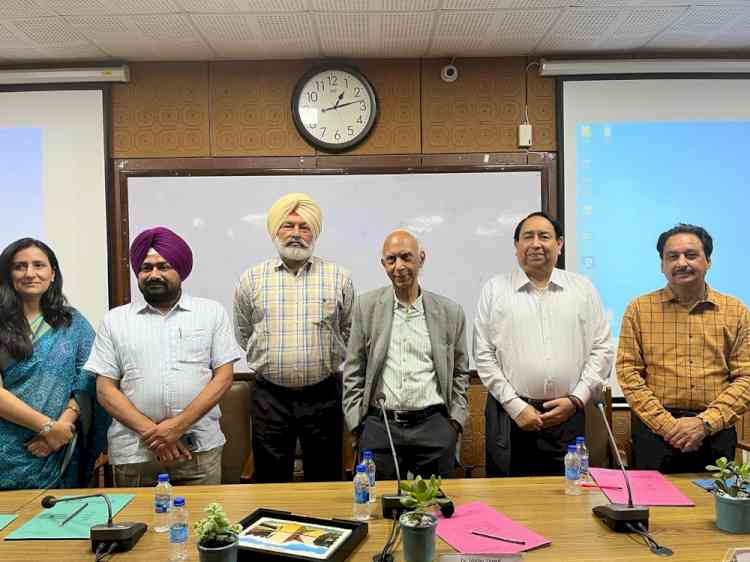
Chandigarh, April 12, 2024: Department of Defence and National Security, Panjab University in collaboration with Department of Punjabi, Panjab University organised a distinguished lecture on the topic “Partition of India and the emergence of Pakistan as a garrison state” by a prominent scholar and author, Dr. Ishtiaq Ahmed, Professor Emeritus, University of Stockholm, Sweden in the seminar room, SAIF/CIL, Panjab University, Chandigarh on Friday.
This special lecture was organised under the guidance of Dr. Jaskaran Singh Waraich, Chairperson, Department of Defence and National Security and Dr. Yog Raj Angrish, Chairperson, Department of Punjabi. Dr Shaveri Thakur welcomed the Speakers, guests as well as faculty members, research scholars and students present for the event. She also introduced the esteemed speaker to the audience. The event was presided over by R. K. Kaushik, IAS. Lt. Gen. G. S. Sangha, AVSM, VSM, SM (Retd.), Chair Professor, Maharaja Ranjit Singh Chair, DDNSS, PU was also present at the dais.
The speaker in his address traced the genesis of Pakistan back to the start of the Second World War, where Muslim league led by Muhammad Ali Jinnah and Hindu Mahasabha supported the war efforts of Britishers whereas Congress launched the Quit India movement. During that time the Britishers started cultivating Jinnah as a counterweight to the Congress. He emphasised that change of the dynamics of power in Britain's domestic politics and also in world order as the US rise as a world leader, went in favour of Indian independence. He was of the firm view that Britishers had a set agenda of dividing India into two states, they were apprehensive of India turning into a flag bearer of anti imperialism and possibly a future ally of the USSR. He said that it was Britishers who designed the partition, whereas financial and military aid given by the US strengthened the army, which led to the Pakistan garrison state.
He opined that Pakistan came into existence as a very strange state, whose territory was separated by hundreds of miles, had no industrial base and a widely prevalent feudal system. Pakistan was born with security concerns and it turned to the US to satisfy its security needs. The US started providing military support to Pakistan and helped greatly to strengthen the institutions of the Army. Pakistan at its inception lacked political vision, thus hatred and fear vis-à-vis India were used as a tool to unify the people of this new state. He covered briefly the military history of Pakistan and features of various military leaders' rule. He suggested that India should sort out its border conflict with China and concentrate further on its socio-economic development. On the other hand, he suggested Pakistan should start trade with India and eventually turn its border with India into an international border for the possibility of peace between the two nations.
R. K. Kaushik in his presidential remarks, pointed to the total dominance of the establishment in Pakistan, which is led by its army. This has led to precarious and dismaying economic indicators, and continuous political instability. He thanked the Speaker for his remarkable work on South Asian politics and especially on Pakistani politics.
Dr. Yog Raj Angrish gave a vote of thanks and emphasised a need to develop a more comprehensive understanding of this complex issue. The seminar was attended by the faculty, research scholars, students of the University and also serving military personnel.


 City Air News
City Air News 





